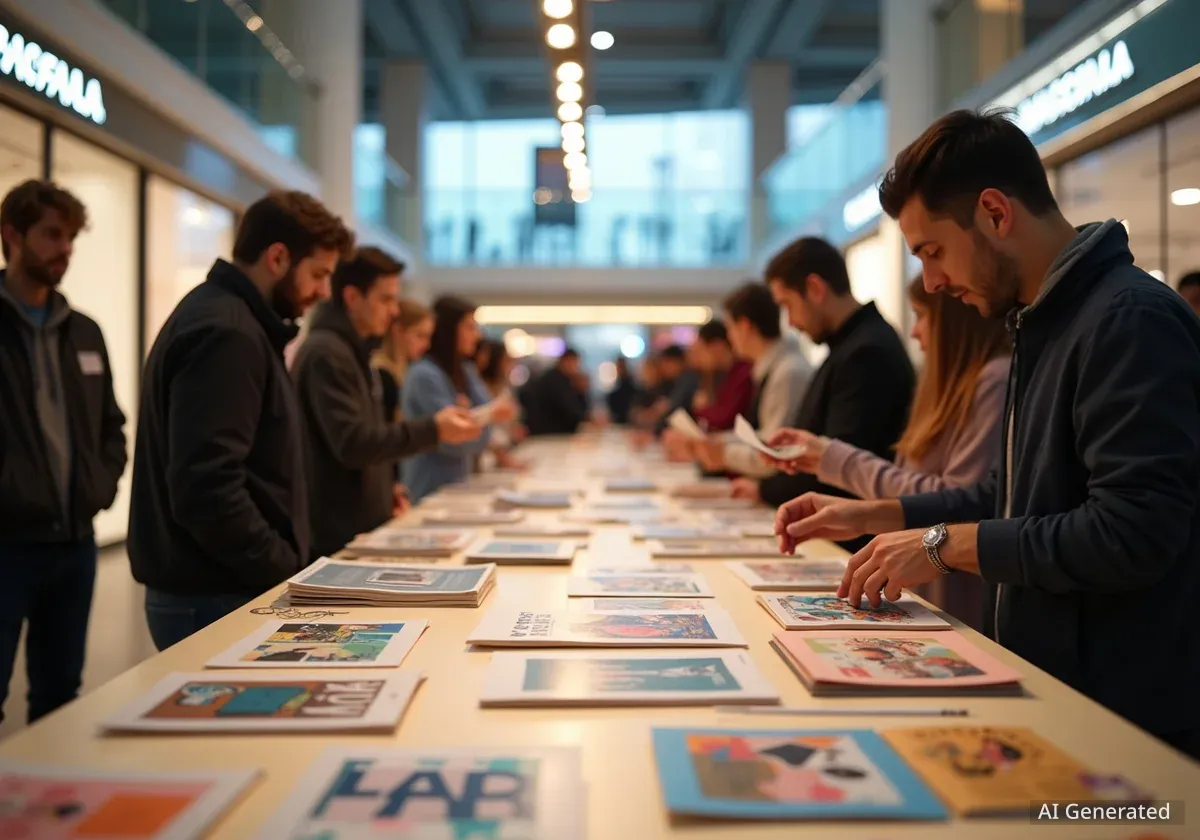Brian Patten, a celebrated poet who was a central figure in the 1960s Liverpool poetry scene, has died at the age of 79. His passing marks the end of an era for the city's literary history, as he was the last surviving member of the influential trio known as the Mersey Sound poets.
Patten, alongside Roger McGough and the late Adrian Henri, brought poetry to a new, younger audience with their accessible and contemporary work. Their joint anthology, The Mersey Sound, became one of the best-selling poetry collections of all time, fundamentally changing the landscape of modern British poetry.
Key Takeaways
- Liverpool poet Brian Patten, a key member of the Mersey Sound poets, has died at the age of 79.
- He was the last surviving member of the influential trio, which also included Roger McGough and Adrian Henri.
- Their 1967 anthology, The Mersey Sound, sold over 500,000 copies, making it a landmark publication in British poetry.
- Patten was also a prolific author of children's literature, with his work translated into multiple languages.
A Defining Voice of a Generation
Brian Patten was born in Bootle, Liverpool, on February 7, 1946. His early life in the city profoundly shaped his poetic voice, which often blended realism with imaginative and sometimes fantastical elements. He began writing poetry as a teenager and quickly became a prominent figure in the burgeoning cultural scene of 1960s Liverpool.
At just 17 years old, Patten was editing the underground magazine Underdog, which played a crucial role in connecting and promoting the work of local poets. It was during this period that he formed a close creative partnership with Roger McGough and Adrian Henri. Together, they became known for their live readings, which were often held in pubs and clubs, breaking poetry out of its academic confines and presenting it as a form of popular entertainment.
The Mersey Beat Scene
The rise of the Mersey Sound poets coincided with the global phenomenon of Merseybeat music, led by The Beatles. This cultural explosion in Liverpool created an environment where creative arts, including poetry, thrived. The poets' work was seen as the literary equivalent of the music, capturing the wit, energy, and social commentary of the time.
Their style was direct, humorous, and relatable, tackling everyday subjects like love, loss, and the quirks of modern life. This approach resonated strongly with a public that often found traditional poetry to be distant and inaccessible. Patten's work, in particular, was noted for its lyrical quality and emotional depth.
The Impact of 'The Mersey Sound'
The publication of The Mersey Sound by Penguin in 1967 was a watershed moment. The anthology collected the works of Patten, McGough, and Henri, and its success was immediate and overwhelming. It captured the spirit of the 'Swinging Sixties' and introduced poetry to a mass audience.
A Publishing Phenomenon
The Mersey Sound has sold more than 500,000 copies since its initial publication. It remains one of the best-selling poetry anthologies ever published in the United Kingdom, cementing the legacy of the three poets.
Critics at the time were divided. While the literary establishment was sometimes dismissive of their populist appeal, the public embraced their work enthusiastically. The book's success demonstrated a significant public appetite for poetry that was both modern and understandable. An updated version, The New Mersey Sound, was published in 1983, and the original continues to be studied in schools today.
Roger McGough, now the sole surviving member of the trio, paid tribute to his friend. He described Patten as a poet of "great lyrical charm" whose work was "full of strange, magical twists." Their collaboration and friendship were central to the success of the Mersey Sound movement.
A Prolific and Varied Career
While The Mersey Sound brought him initial fame, Brian Patten's career extended far beyond the 1960s. He was a highly productive writer, publishing numerous solo collections of poetry for adults, including Notes to the Hurrying Man and Walking Out with the Angel.
His later work often explored more mature themes, reflecting on memory, mortality, and the passage of time, but always with the clarity and imaginative flair that defined his style. He was a Fellow of the Royal Society of Literature and received the Cholmondeley Award for his contributions to poetry.
Writing for a Younger Audience
Patten also achieved significant success as a writer for children. His most famous work in this genre is Gargling with Jelly, a collection of humorous poems that became a favourite in schools and homes across the country. He also wrote the award-winning children's novel, Mr. Moon's Last Case.
His ability to connect with readers of all ages was a testament to his skill as a communicator. His children's poetry shared the same accessibility and playful use of language as his work for adults. This dual career ensured his influence was felt by multiple generations of readers.
"His poetry is full of strange, magical twists. He was a poet of great lyrical charm, and his humour was often underlined by a sadness, a sense of loss." - Roger McGough on Brian Patten
Patten's work for children was widely translated, bringing his unique voice to an international audience. He believed in the importance of introducing children to poetry early, seeing it as a way to foster imagination and a love for language.
Legacy and Tributes
The death of Brian Patten has been met with sadness from the literary world and beyond. Tributes have highlighted his role in democratizing poetry and his lasting impact on the cultural identity of Liverpool. As the last of the Mersey Sound poets, his passing signifies the closing of a major chapter in British literature.
His legacy is not only in the half-million copies of The Mersey Sound sold but also in the countless readers who discovered a love for poetry through his direct and heartfelt words. He showed that poetry could be part of everyday life, spoken in a familiar voice about shared experiences.
Brian Patten's contribution was to help bridge the gap between 'high' art and popular culture, proving that poetry could belong to everyone. His work remains a vital part of Liverpool's artistic heritage and a continuing source of inspiration for writers and readers alike.





